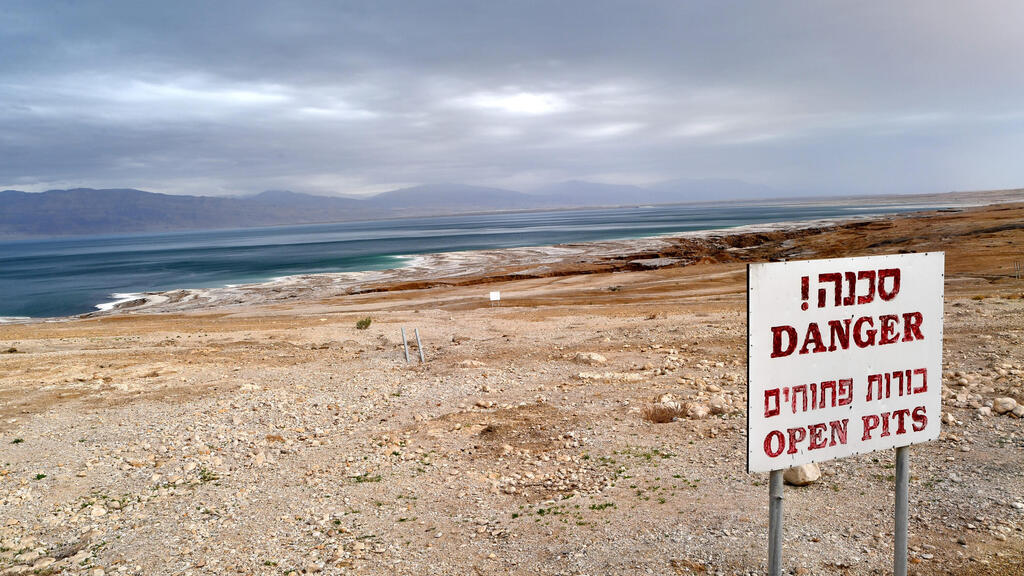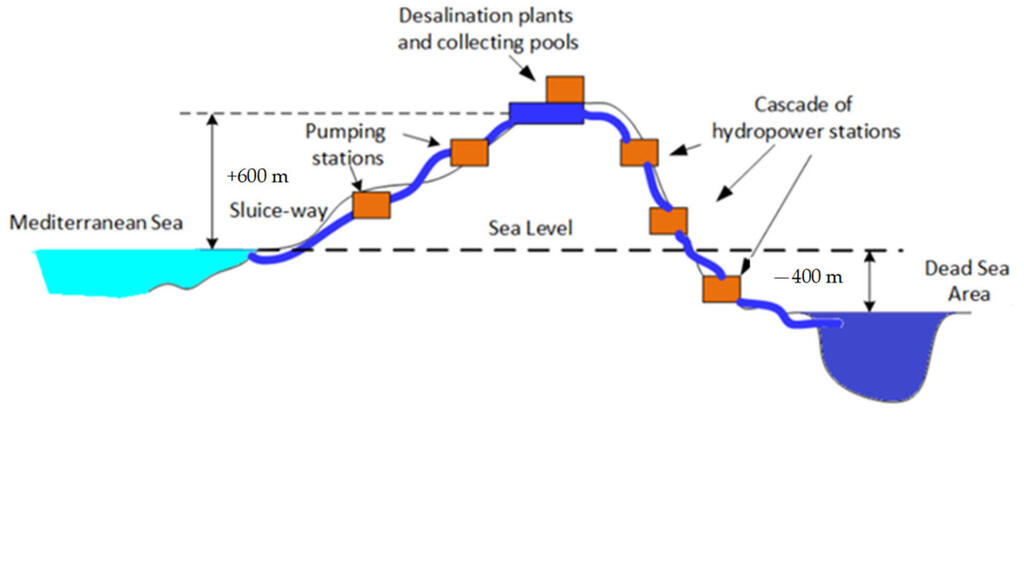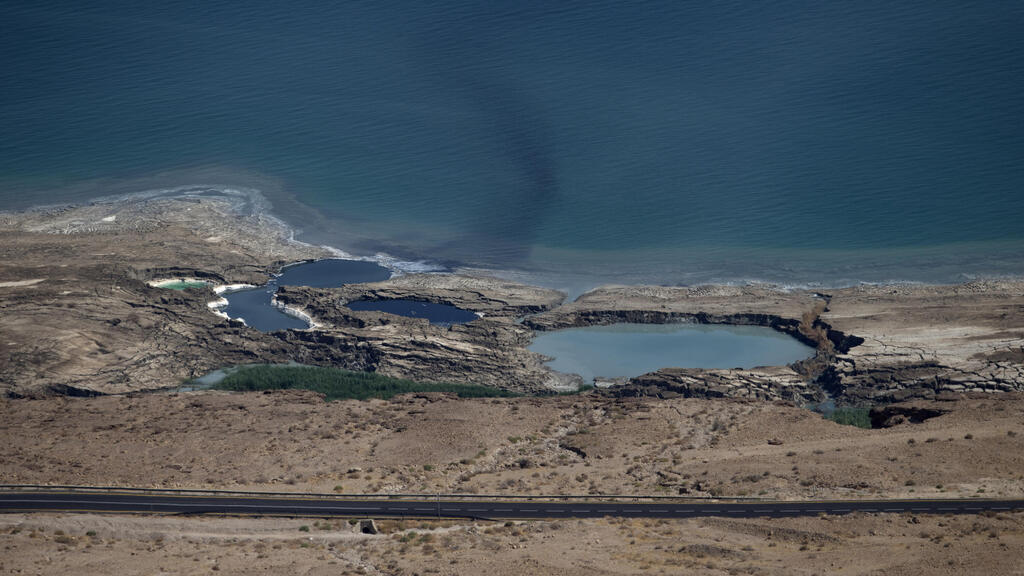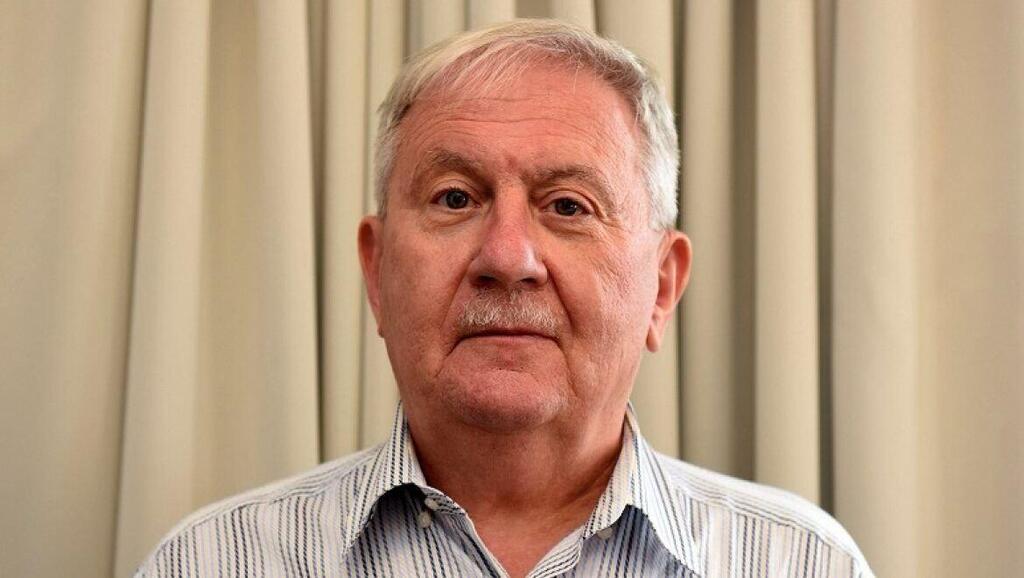Getting your Trinity Audio player ready...
A groundbreaking environmental and energy initiative, published in the Energies and Journal of Clean Energy and Energy Storage publications in 2023 and 2024, has completed its theoretical phase and is now moving to scientific trials. Led by Prof. Moshe Averbuch of Ariel University, the research team aims to achieve three significant goals: saving the Dead Sea from drying up, storing solar energy independent of time and desalinating water.
The researchers also stressed the potential to create recreational, tourism and resort areas around the canal in the Judean Desert.
How will it work? Water will be pumped from the Mediterranean Sea to desalination plants in the mountains above the Dead Sea. The fresh water will enter a supply reservoir and the brine left after desalination will be stored in special pools.
"In the evening, when there's no solar power but electricity consumption is high, the concentrated brine will be released from the pools into the Dead Sea through hydroelectric stations, generating electricity," Prof. Averbuch explained.
Since the Dead Sea is 400 meters (1,312 ft) below the Mediterranean Sea, the water flow will generate more energy than is required to pump it up to the desalination plants. Furthermore, because the brine is stored in pools, it can be released at desired times unlike solar energy, which is dependent on daylight and seasons.
"The flexibility of electricity production through hydroelectric storage will allow for greater solar electricity generation without compromising its quality. This will lead to a better output balance of conventional power stations," Prof. Averbuch added.
The Dead Sea is a closed basin, and with the significant reduction in water flow into it, it's drying up, leading to severe environmental consequences. Due to dams built on the Yarmouk River and the outflow from the Sea of Galilee, almost no water flows the Dead Sea from the Jordan River.
As a result, more water evaporates from the Dead Sea's surface than flows into it, causing the sea, considered a national and global treasure, to shrink at an alarming rate. "In recent decades, a significant deterioration has been taking place, with an annual drop of about a meter (3.28 ft) in water level, leading to sinkholes and damage to infrastructure in the area," Prof. Averbuch added.
The Mediterranean-Dead Sea Canal offers several ecological benefits, including stabilizing the rapidly declining water level of the Dead Sea and restoring its ecological balance. Prof. Averbuch explained that realizing the project could change the ecology around the canal route, with the potential to establish green areas and recreational resorts.
Another environmental aspect the project seeks to address involves maintaining the ecological balance in the Mediterranean Sea. Currently, desalination plants discharge the waste separated from freshwater back into the Mediterranean. This waste is saltier than the sea's natural salination, harming marine life, plants and the seabed. The researchers aim to prevent this damage through their groundbreaking study.





